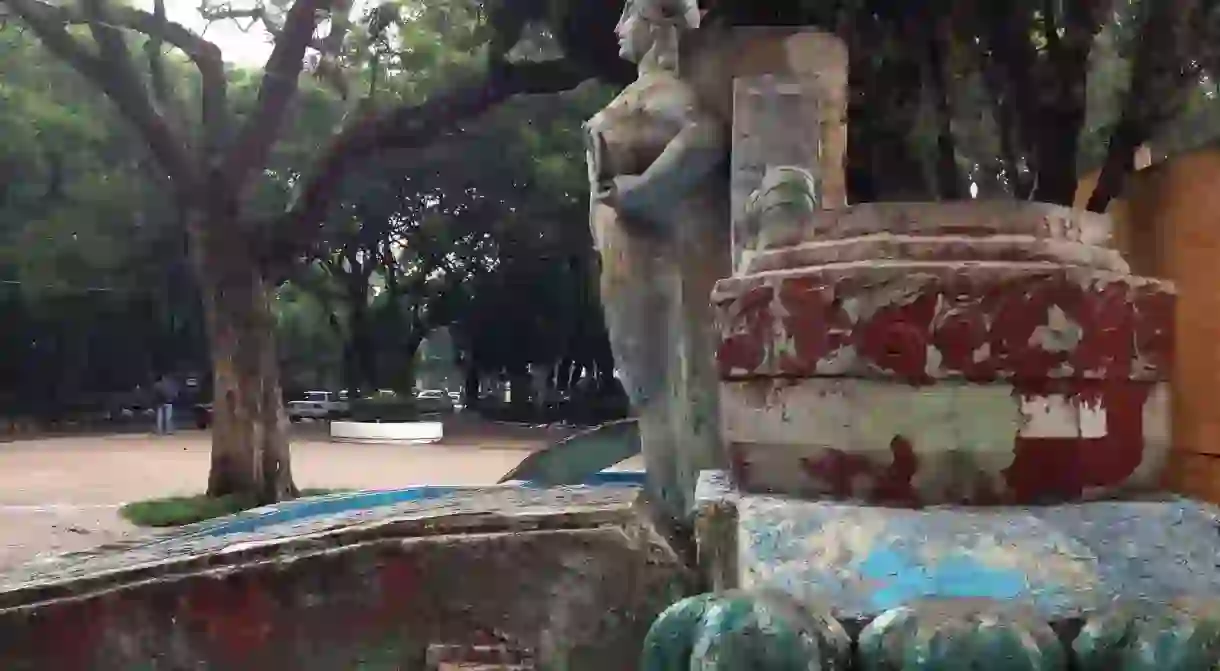7 Reasons Why a Visit to Condesa Will Banish Your Mexico City Stereotypes

Mexico City’s Condesa neighborhood is one of those magical enclaves in the city where you don’t feel like you are in the megalopolis at all. This neighborhood bucks all the traditional ideas visitors have about coming to Mexico’s capital city. Condesa is a unique part of Mexico City that shouldn’t be missed, here’s why.

It’s so GREEN!
Photos of Mexico City often make it out to be a crowded, dirty and polluted megalopolis. Even shots of beautiful, historic downtown are not the leafy, green avenues that some global cities get to boast. The city is actually quite green when you look at statistics, but Colonia Condesa is one of its greenest spots. Amsterdam avenue, the former Mexico City Jockey Club racetrack is a tree-lined paradise in the middle of the traffic and the noise, where runners spend their afternoons and dog owners take out their pooches for a little wander amid the greenery. If you never thought of Mexico City as leafy and emerald you have never been to Colonia Condesa.

Bikes, trikes and dogwalkers
We won’t lie and say that Mexico City’s infamous traffic jams don’t reach into the recesses of the Condesa neighborhood, but it is true that you will find many of the colonia’s residents taking advantage of alternative transportation. Cycling is a huge trend throughout the city, but in Condesa you will find executives biking to work, deliverymen cycling to office buildings and freelancers everywhere pedaling to their favorite coffeeshop. In addition there are walker of all shapes and sizes, including furry ones with owner in tow or in a monstrous pack of friendly hounds.

An international crowd
Sit at any Condesa coffeeshop and the Spanish and English that you will hear will be accompanied by French, German, Italian and Portuguese. That’s because as one of the city’s most popular neighborhoods, the Condesa draws a distinctively international crowd – and not just to visit but also to live. This mix of cultures is part of what makes the neighborhood such a lively place when it comes to restaurants, activities and the random neighbors you will encounter on your nightly walk around the block.

An international menu
Everyone comes to Mexico City for Mexican food, but Condesa gives locals a taste of the international when that is what they fancy. Israeli restaurants, French bistros, US-style burger joints and even Polish fine dining can all be found on the menu among the streets of Condesa. In addition, several high-end and organic food stores provide the homesick with fresh bagels, European-style cheeses and decadent Italian wines. Condesa is a sometimes much-needed international break for city residents looking for cuisine beyond their borders.

The price tag
Mexico is cheap right? Wrong. Colonia Condesa is not only home to one of the city’s most expensive streets to live on (Amsterdam Avenue) but most things here have a steep price tag. Even the grocery store and the local market have slightly higher prices than other neighborhoods. The neighborhood has such lusted-after property that costs have skyrocketed in the past 15 years or so, from boutique shops to upscale dining to the streetside flower stand. Come with some dough in your pocket, because despite what you might imagine about Mexico City, the Condesa is not cheap.

Missing street vendors
Food tours, international press and just down-home deliciousness has made eating street food a stand-out experience on your tour of Mexico City. It must be on every street corner right? Not so in the posh and at times fussy Condesa. Most vendors who sell on the streets of this neighborhood are either completely mobile (meaning they roam from place to place hawking their wares and go home at the end of the day) or they are tiny mom and pop locations with an actual roof and tables. The semi-permanent stands that you will find in neighboring Colonia Roma and other neighborhoods just don’t exist within Condesa limits.

Art Deco abounds
Mexico is known for its dramatic Colonial architecture and even more so for its Aztec ruins that are scattered about the city and surrounding countryside, but Condesa proves there is more to the city than a single style. Like Colonia Roma, Condesa was being developed at the beginning of the 20th century and was just in time for the Art Deco boom that swept the city at the time. Condesa has some incredible example of early and later Art Deco styles and some of Mexico’s most famous architects designed houses in this neighborhood’s streets. Take a tour or just wander on your own and discover the Art Deco side of the city in the Condesa.














